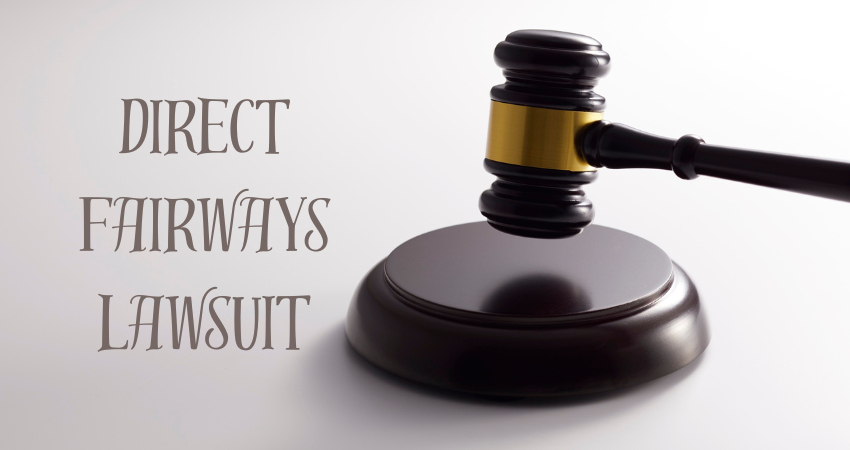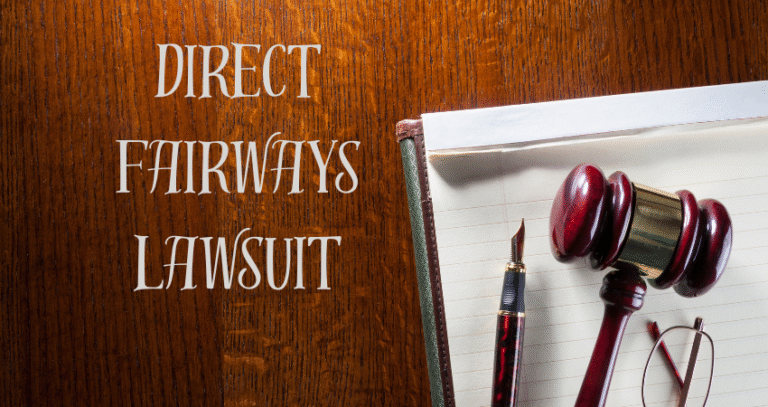Marketing companies aren’t strangers to controversy—but few cases have sparked as much attention as the direct fairways lawsuit. Whether you’re a small business owner, an attorney, or just curious, this in-depth guide will walk you through everything you need to know—minus the legal jargon and with all the juicy details.
What is Direct Fairways?
Direct fairways lawsuit is (or was) a golf marketing company based in the U.S., focusing on promotional advertising. They sold customized scorecard ads, tee box signs, and promotional material to small local businesses, mostly across the golf industry.
They positioned themselves as a “win-win” service—offering golf courses free marketing material while getting businesses to pay for ad placements.
Why is Direct Fairways in the News?
Despite its promising pitch, Direct Fairways landed in hot legal water. Complaints started pouring in about deceptive practices, poor service, and unmet promises. Eventually, this firestorm led to a full-blown lawsuit.
Background of Direct Fairways
Overview of the Company
Direct Fairways targeted small businesses looking to reach a niche but affluent golf-playing demographic. Their staff worked in high-pressure sales environments—cold-calling potential clients with slick pitches and promises of visibility.
Marketing Strategy
Their strategy was aggressive and fast. Call scripts focused on urgency, claiming “limited space” or “exclusive opportunity.” Unfortunately, many clients later claimed those promises didn’t pan out.

The Origins of the Lawsuit
How It Started
Everything began when clients noticed delays in delivery, misrepresentation in services, and unauthorized charges. Some never even saw their ads published or confirmed with golf courses.
Who Filed It?
Several small business owners filed complaints through state attorneys general and individual lawsuits. Eventually, murmurs of a class-action suit began to grow.
Main Allegations
-
Deceptive marketing
-
Failure to deliver services
-
Harassing telemarketing practices
Claims Made in the Lawsuit
1. False Advertising and Misrepresentation
Many clients were promised exposure on golf courses that either never agreed to it or had already ended their deals with Direct Fairways.
2. Breach of Contract
Some paid for services that were never delivered. Others claimed they were tricked into signing legally binding agreements they didn’t fully understand.
3. Telemarketing Violations
Unwanted, repeated calls—even after businesses asked them to stop—triggered concerns over violations of the Telephone Consumer Protection Act (TCPA).
Key Parties Involved
Plaintiffs
These are mostly small business owners, like real estate agents, local restaurant owners, and chiropractors who fell for the company’s high-pressure sales.
Defendants
Direct Fairways LLC and its key executives were named in the lawsuits.
Legal Representatives
Several law firms took on cases individually, and some explored class-action certifications to unite affected clients.
Timeline of Events
-
2020-2021: Complaints begin to rise across forums and review sites
-
2022: Legal filings initiated in various states
-
2023: Press coverage brings national attention
-
2024: BBB downgrades and lawsuits pick up steam
Legal Implications and Analysis
Federal & State Laws Violated?
-
Breach of contract
-
Deceptive Trade Practices Act (DTPA)
-
TCPA violations
Industry Expert Opinions
Legal experts agree: This case could redefine how B2B marketing firms operate and communicate terms to clients.
Public and Client Reactions
Testimonials from Former Clients
“They sweet-talked me into paying $1,000. I never saw a single ad.”
“They kept calling even after I asked to be removed from the list.”
Social Media Uproar
Hashtags like #DirectFairwaysScam have gained traction, especially on Reddit and Facebook business groups.
Company’s Response
Public Statements
Direct Fairways has largely remained silent publicly. In a few cases, their reps denied wrongdoing or blamed clients for “misunderstanding” the contract.
Legal Defense
They claimed services were delivered as promised and that any non-delivery was due to client-side delays.
Similar Cases in the Industry
This isn’t a one-off. Other companies in promotional marketing have faced similar legal woes. It’s a cautionary tale for firms pushing hard-sell tactics with vague deliverables.
The Role of the Better Business Bureau (BBB)
-
Numerous unresolved complaints
-
BBB rating dropped to an F
-
Consumer alerts posted about the company’s practices

Financial Impact on Direct Fairways
Lawsuits and poor press have likely slashed revenue, lost clients, and caused high turnover in sales teams. Some speculate bankruptcy may be on the horizon.
What This Means for Small Businesses
If you’re a small business owner, this case is a wake-up call. Always verify:
-
Who you’re doing business with
-
Whether golf courses confirm ad placements
-
If contracts are fair and cancelable
Legal Advice for Affected Clients
-
Keep records of payments, contracts, and calls
-
File a complaint with your state’s attorney general
-
Consider joining any active class-action suits
-
Contact legal counsel for direct representation
Future of Direct Fairways
Can They Recover?
Unlikely—unless they pivot their business model, invest in transparency, and address complaints seriously.
Will They Rebrand?
Companies in legal hot water often rebrand to shake off a tarnished name. Time will tell.
Conclusion
The direct fairways lawsuit is more than just courtroom drama—it’s a critical lesson in marketing ethics, client protection, and the risks of vague promises. For small businesses, it’s a red flag waving high in the wind, urging caution, research, and vigilance.
FAQs
1. Is Direct Fairways still in business?
They appear to still operate, but at a diminished capacity amid legal troubles.
2. How can I get my money back?
Contact your bank, document everything, and consult with an attorney about small claims court or joining a class action.
3. Is this a class-action lawsuit?
Some legal firms are exploring class-action certification. Stay updated through your local consumer protection office.
4. What are the signs of a scam marketing company?
High-pressure sales, unclear contracts, vague deliverables, and refusal to refund or cancel—big red flags.
5. Where can I report similar companies?
File complaints with the Better Business Bureau, FTC, and your state’s attorney general office.
